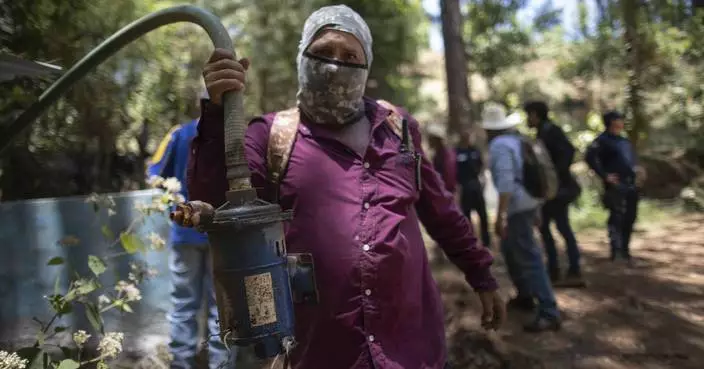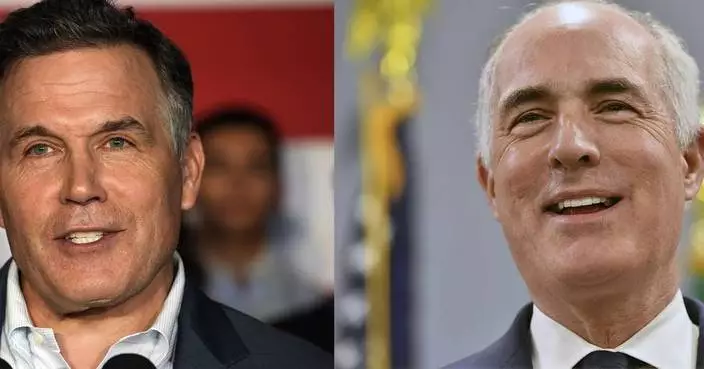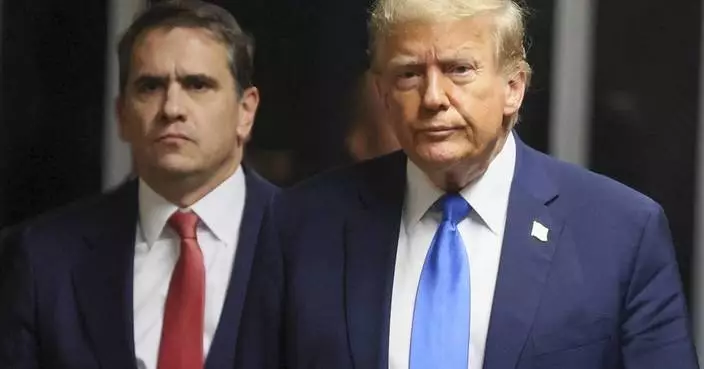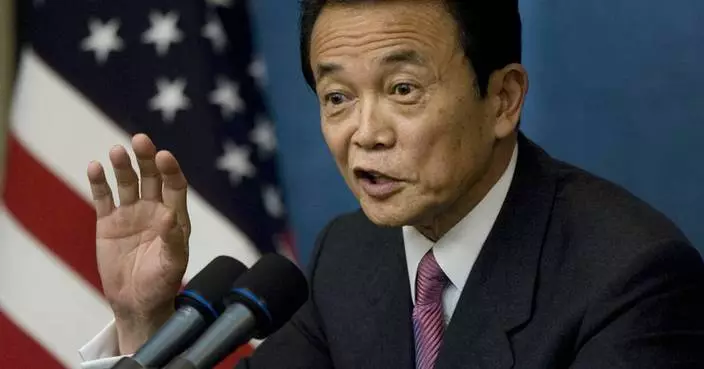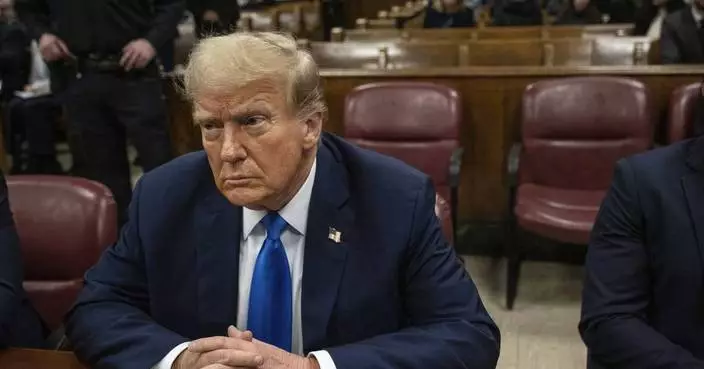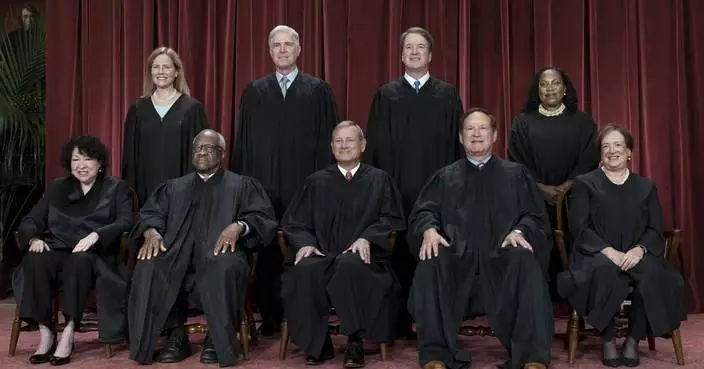The president photo-shopped a picture of his Las Vegas hotel standing tall over a Greenland village.
US president Donald Trump has posted a light-hearted tweet likely to further inflame sensitivities over his comments about buying Greenland, photo-shopping a picture of his glitzy Las Vegas hotel towering over a small town in the territory.
Mr Trump on Sunday confirmed the idea of buying the semi-autonomous Danish territory had been discussed within his administration because of the strategic benefits to the US, which has for decades operated the Thule air force base in Greenland.
After Danish Prime Minister Mette Frederiksen dismissed the idea as “absurd”, Mr Trump stirred the issue further on Monday night by engaging in some digital mischief, tweeting above the superimposed photo of his Trump International Hotel: “I promise not to do this to Greenland!”
Mr Trump told reporters on Sunday the idea of buying Greenland from Denmark was “just something we’ve talked about”.
“Denmark essentially owns it. We’re very good allies with Denmark,” he said. “We’ve protected Denmark like we protect large portions of the world, so the concept came up.”
Ms Frederiksen, visiting Greenland to meet premier Kim Kielsen, reiterated that Greenland was not for sale.
“Greenland is not Danish. Greenland is Greenlandic,” she said. “I persistently hope that this is not something that is seriously meant.”
Reaction to Mr Trump’s joke was swift and mixed, with some Twitter users applauding the president’s humour and others decrying his insensitivity.
While one tweet saying it was “so refreshing to have a leader with a real sense of humor!” was typical of those supporting the president, from the opposite camp came messages such as: “Trump, please crawl back under a rock. You are a national embarrassment every day.”
One man clearly on the president’s side was his son Eric, who wrote on Instagram: “I don’t know about you guys but I love the concept of buying Greenland.”
WASHINGTON (AP) — The Supreme Court hears arguments Thursday over whether Donald Trump is immune from prosecution in a case charging him with plotting to overturn the results of the 2020 presidential election.
It's a historic day for the court, with the justices having an opportunity to decide once and for all whether former presidents can be prosecuted for official acts they take while in the White House.
But between a decades-old court case about Richard Nixon, and an obscure constitutional provision about presidential impeachments, there are likely to be some unfamiliar concepts and terms thrown about.
Here are some tips to help follow everything:
The court marshal will bang the gavel at 10 a.m. EDT and Chief Justice John Roberts will announce the start of arguments in Donald J. Trump vs. United States of America, as the case is called.
The session easily could last two hours or more.
There are no cameras in the courtroom, but since the pandemic the court has livestreamed its argument sessions. Listen live on apnews.com/live/trump-supreme-court-arguments-updates or the court’s website at www.supremecourt.gov. C-SPAN also will carry the arguments at www.c-span.org.
Expect to hear talk about the impeachment process and the relationship, if any, to criminal prosecution.
Central to Trump's immunity argument is the claim that only a former president who was impeached and convicted by the Senate can be criminally prosecuted. Trump was impeached over his efforts to undo the election in the run-up to the violent riot at the U.S. Capitol on Jan. 6, 2021. But he was acquitted, not convicted, by the Senate in 2021.
Trump's lawyers cite as backup for their argument a provision of the Constitution known as the Impeachment Judgment Clause that says an officeholder convicted by the Senate shall nevertheless be “liable and subject to indictment, trial, judgment and punishment” in court.
Prosecutors say the Trump team is misreading the clause and that conviction in the Senate is not a prerequisite for a courtroom prosecution.
There's going to be plentiful discussion about Nixon but not necessarily for the reasons one might think.
Trump's team has repeatedly drawn attention to a 1982 case, Nixon v. Fitzgerald, in which the Supreme Court held that a former president cannot be sued in civil cases for their actions while in office. The case concerned the firing of an Air Force analyst, A. Ernest Fitzgerald, who testified before Congress about cost overruns in the production of a transport plane.
Fitzgerald's lawsuit against Nixon, president at the time of the 1970 termination, was unsuccessful, with Justice Lewis Powell writing for the court that presidents are entitled to absolute immunity from civil lawsuits for acts that fall within the “outer perimeter” of their official duties.
Importantly, that decision did not shield presidents from criminal liability, though Trump's team says the same analysis should apply.
Special counsel Jack Smith's team is also likely to bring up a separate Supreme Court decision involving Nixon that they say bolsters their case — a 1974 opinion that forced the president to turn over incriminating White House tapes for use in the prosecutions of his top aides.
Prosecutors have also noted that Nixon accepted rather than declined a subsequent pardon from President Gerald Ford — a recognition by the men, they say, “that a former President was subject to prosecution.”
The justices are known to love presenting hypothetical scenarios to lawyers as a way of testing the outer limits of their arguments. Expect that practice to be on full display Thursday as the court assesses whether former presidents are entitled to absolute immunity.
Already, Trump's lawyers have warned that if the prosecution is permitted to go forward, it would open the floodgates to criminal charges against other presidents, such as for authorizing a drone strike that kills a U.S. citizen or for giving false information to Congress that leads the country into war.
In a memorable moment during arguments in January before a federal appeals court, a judge asked a Trump lawyer whether a president who ordered a Navy SEAL to assassinate a political rival could be prosecuted.
Look for Smith's team to try to draw a sharp distinction between acts that it says are quintessential exercises of presidential power — such as ordering a drone strike during war — to the acts that Trump is accused of in this case, such as participating in a scheme to organize fake electors in battleground states. Those acts, prosecutors say, are personal acts and not presidential ones.
Associated Press writer Mark Sherman contributed to this report.
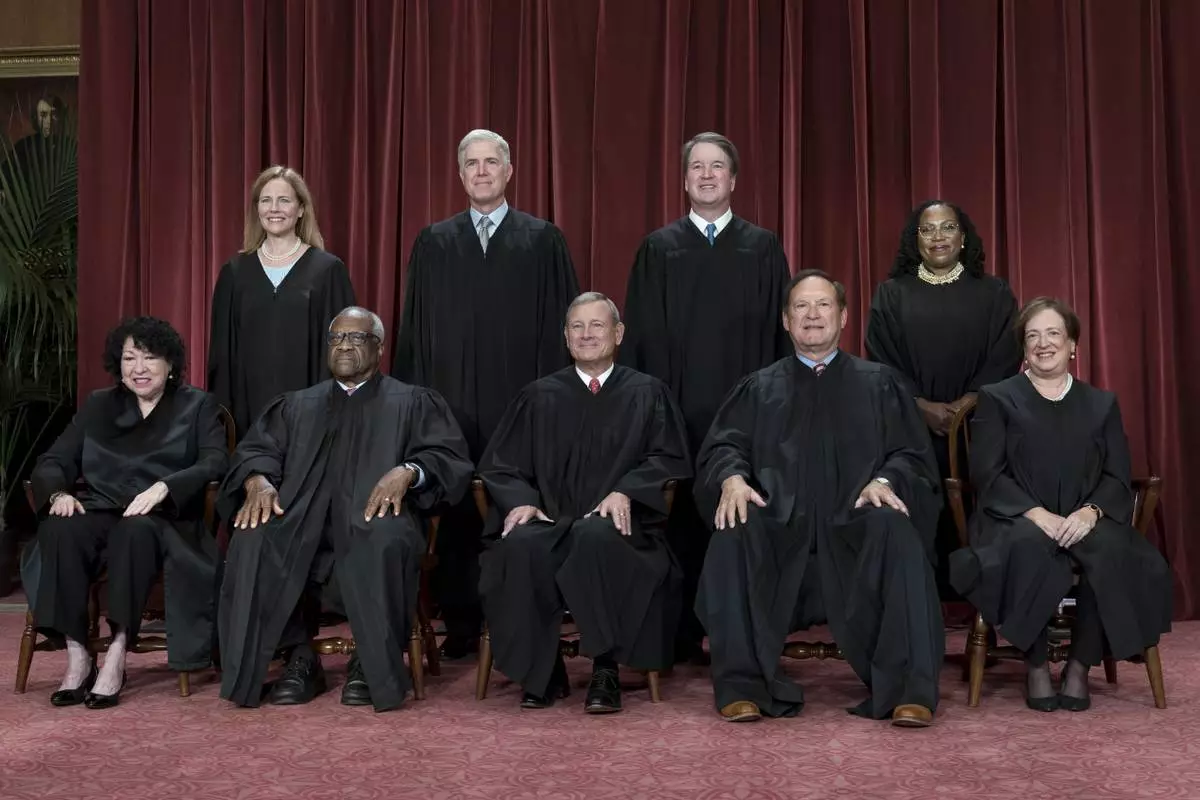
FILE - Members of the Supreme Court sit for a new group portrait following the addition of Associate Justice Ketanji Brown Jackson, at the Supreme Court building in Washington, on Oct. 7, 2022. Bottom row, from left, Associate Justice Sonia Sotomayor, Associate Justice Clarence Thomas, Chief Justice of the United States John Roberts, Associate Justice Samuel Alito, and Associate Justice Elena Kagan. Top row, from left, Associate Justice Amy Coney Barrett, Associate Justice Neil Gorsuch, Associate Justice Brett Kavanaugh, and Associate Justice Ketanji Brown Jackson. The core issue being debated before the Supreme Court on April 25, 2024, boils down to this: Whether a former president is immune from prosecution for actions taken while in office — and, if so, what is the extent of the immunity? (AP Photo/J. Scott Applewhite)
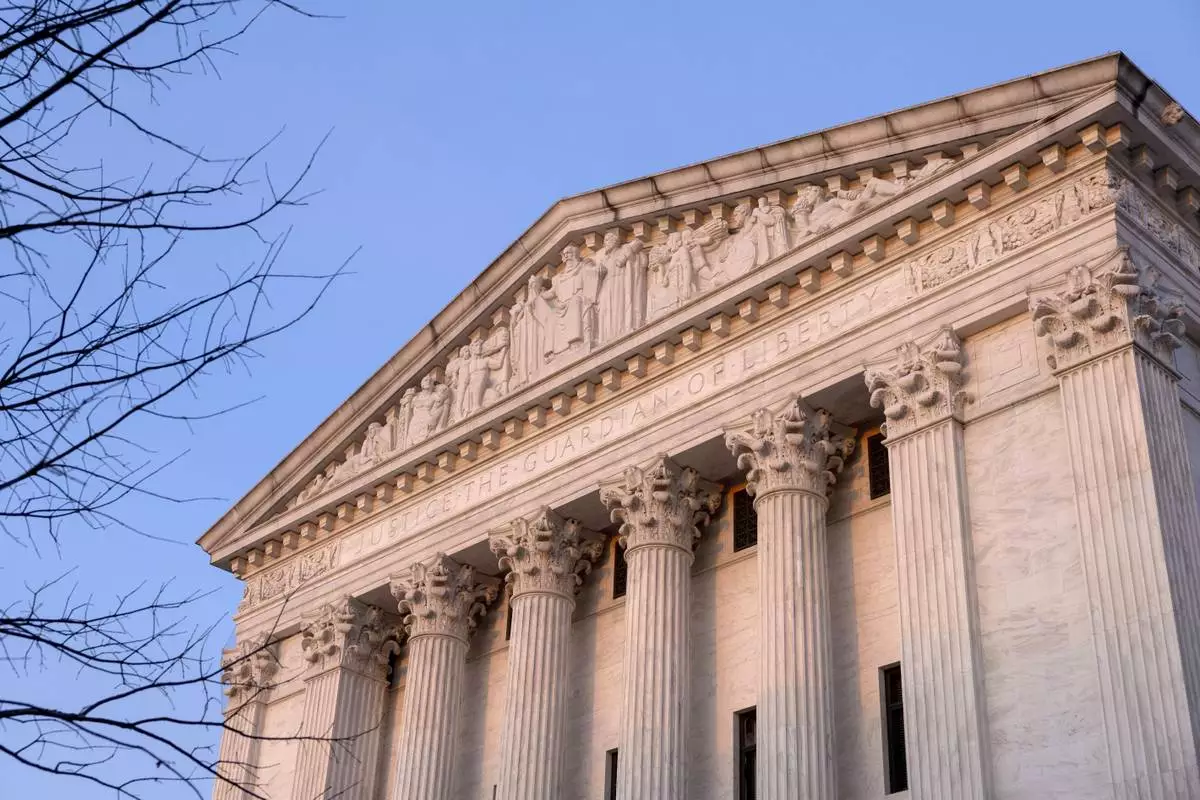
FILE - The Supreme Court of the United States is seen in Washington, March 26, 2024. The Supreme Court is hearing arguments this week with profound legal and political consequences: whether former President Donald Trump is immune from prosecution in a federal case charging him with plotting to overturn the results of the 2020 election. (AP Photo/Amanda Andrade-Rhoades, File)
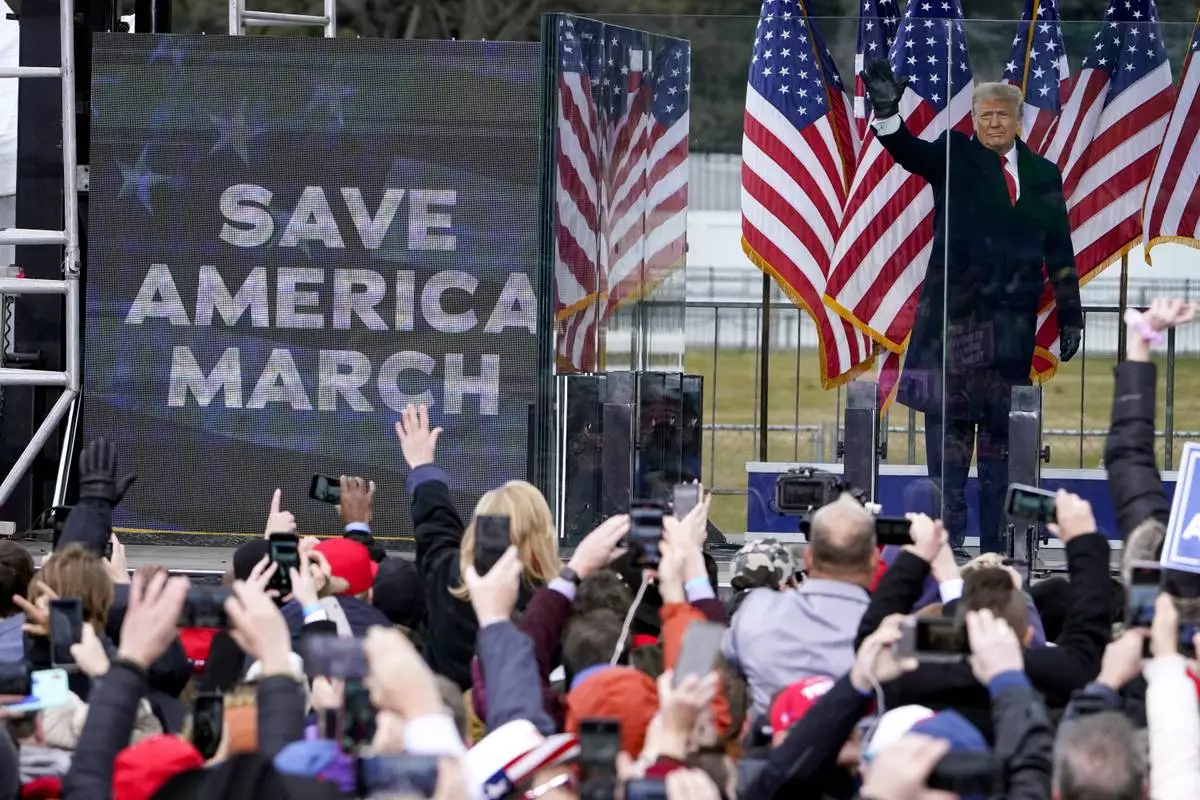
FILE - President Donald Trump arrives to speak at a rally in Washington, on Jan. 6, 2021. The Supreme Court will hear arguments over whether Trump is immune from prosecution in a case charging him with plotting to overturn the results of the 2020 presidential election. (AP Photo/Jacquelyn Martin, File)






